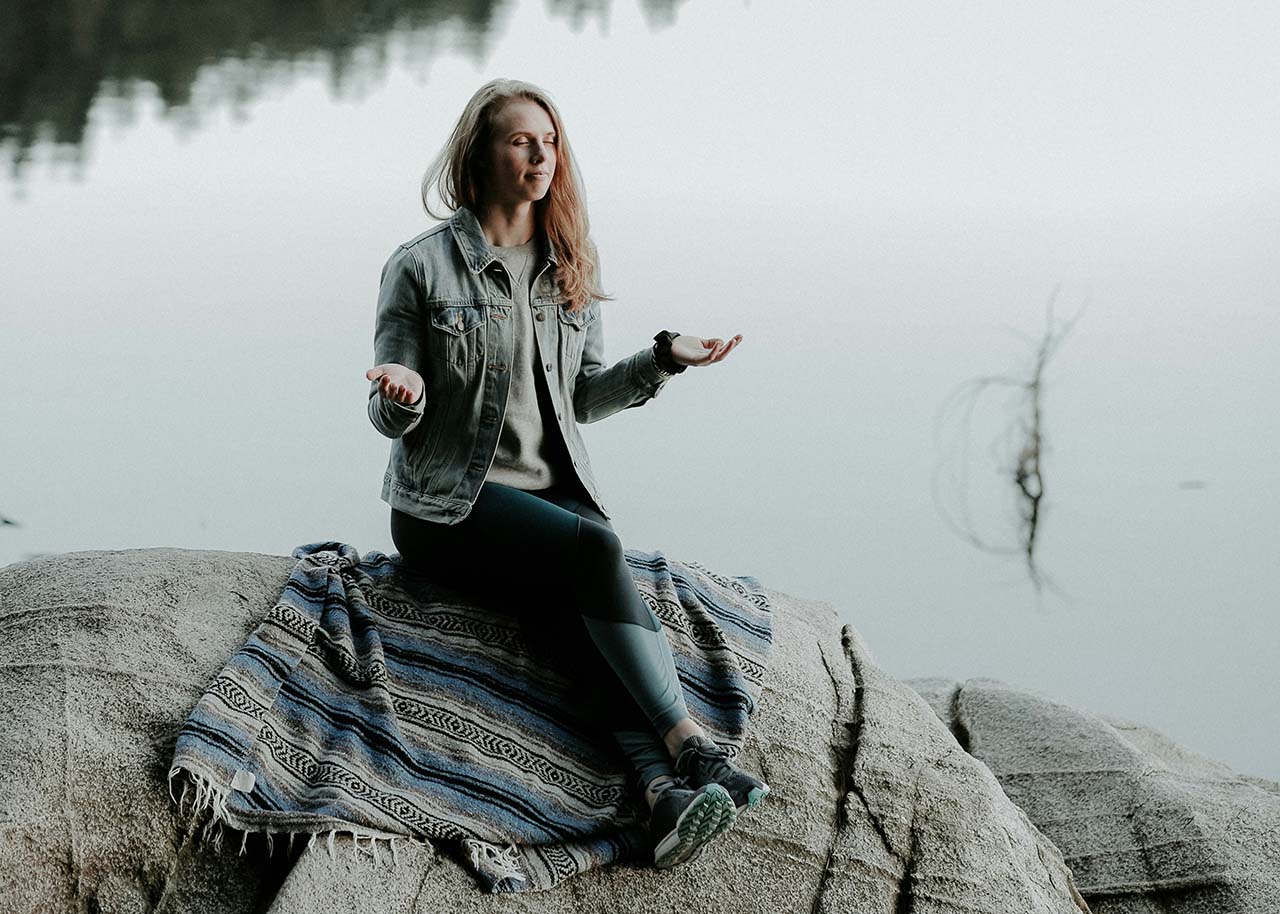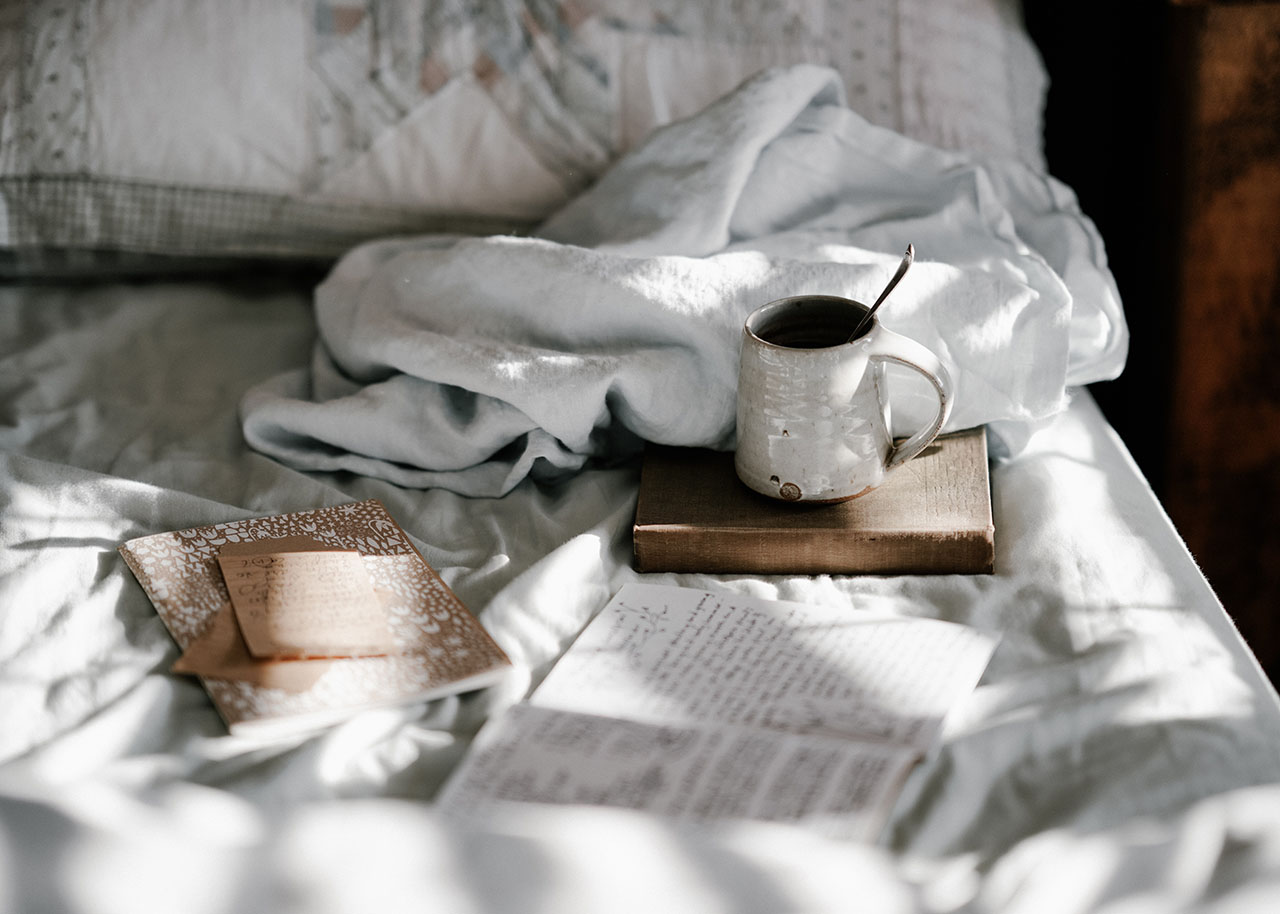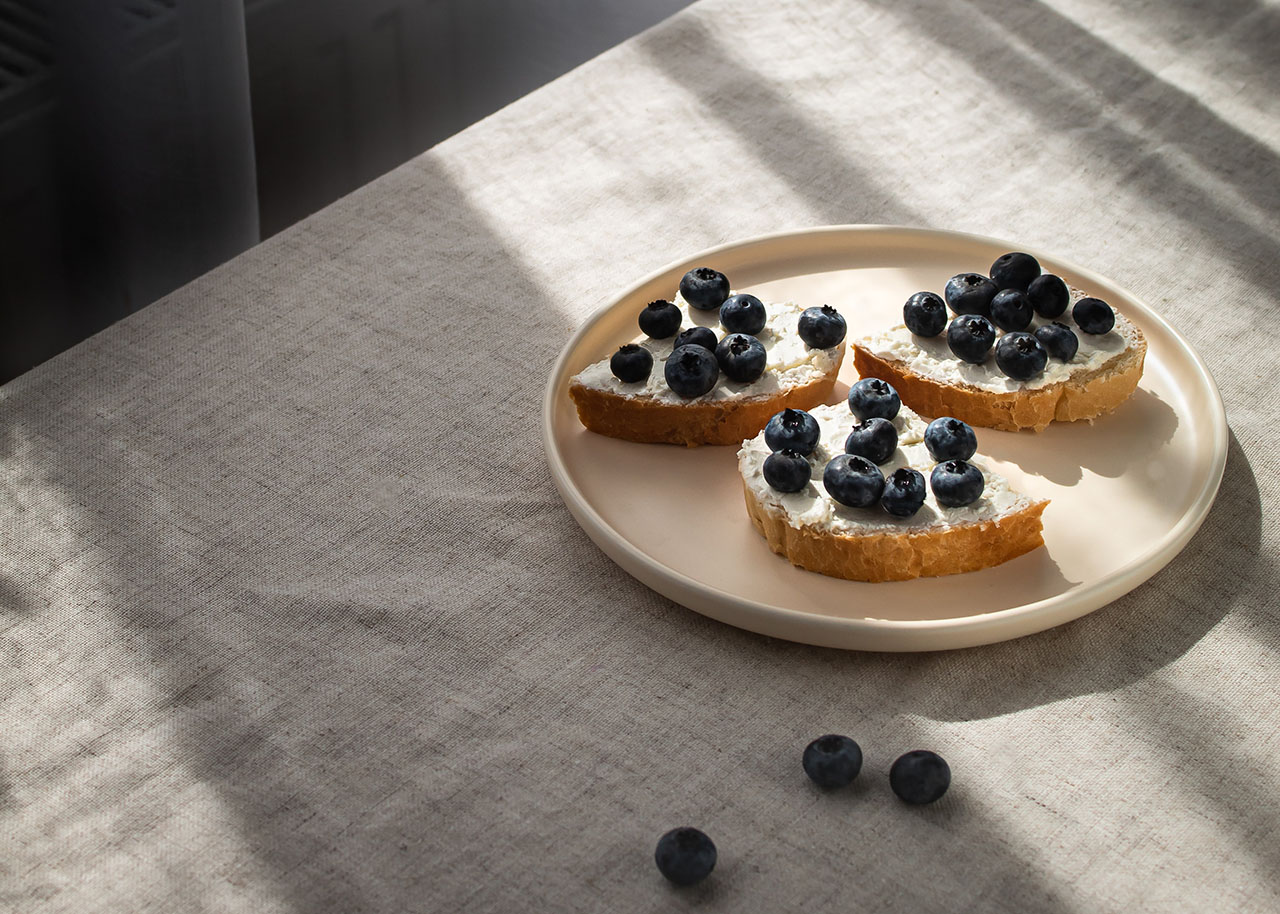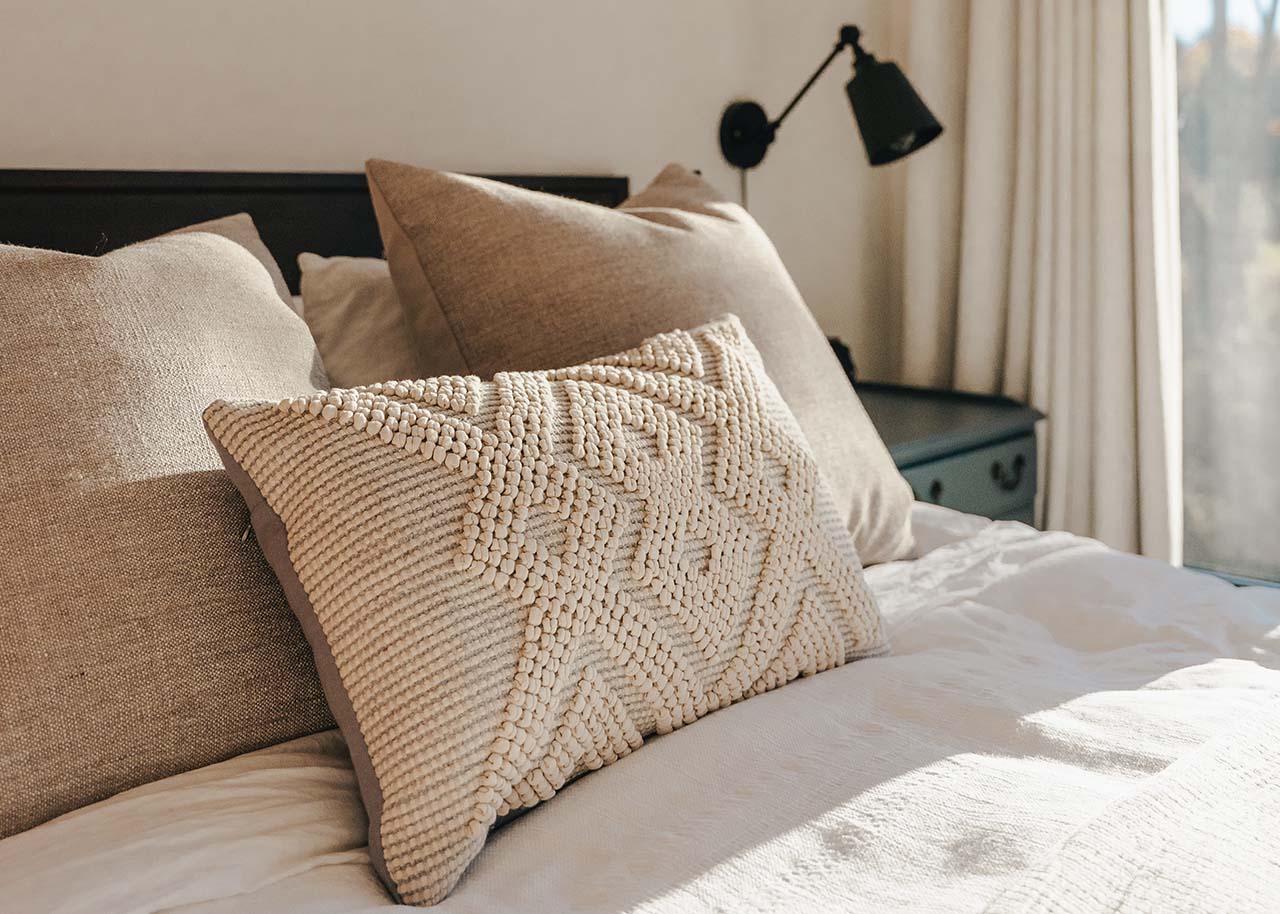‘When you bring down the overthinking and overdoing, you bring down the overwhelm.’
Gabrielle Treanor is a mindset and empowerment coach who helps introverted women lose the overwhelm and feel happier. She is also the host of the Pressing Pause podcast and a freelance writer, and lives in the beautiful Brecon Beacons in Wales.
We were keen to explore the link between slowing down your mind and living more slowly, and asked her why so many of us struggle with overwhelm and what we can do to start to tame our busy minds.
words by Fiona Barrows and Gabrielle Treanor / images by Gabrielle Treanor
Hello Gabrielle!
Perhaps we could start with you telling us a little bit about yourself?
I’m Gabrielle Treanor and I help introverted women to lose the overwhelm and feel calm, confident, in control and, ultimately, happier. I’m a mindset and empowerment coach, I work one to one with clients, create and teach online courses and workshops, I run The Calm Mind Club membership, I’m host of the Pressing Pause podcast and I also write for a variety of magazines such as The Simple Things, Breathe and In the Moment. I live in the Brecon Beacons in south Wales with my husband and little dog, Georgie (who features on Instagram quite often!).
What led you to this work? What’s been your own journey to combat overthinking?
I’ve always been someone who thinks a lot, which in itself is not a bad thing, but when you get stuck going round and round with the same thoughts, in ‘what if-ing’ all the things that could go wrong, it’s not helpful. Being a people-pleaser I didn’t just worry what others might think of me it drove me on to say yes to every request and do whatever I thought I ‘should’ do. And getting caught up in overthinking and overdoing quickly leads to feeling overwhelmed.
My first career was 15 years in children’s and youth publishing and then I started and ran my own stationery business. But I spent so much of my time thinking about what I should be doing, if I was doing the right thing, was I making everyone else happy… that even though my life was great on paper I just wasn’t as happy as I felt I should be, could be or wanted to be. I wasn’t acting in a way that felt good to me.
Then I discovered the world of positive psychology and that was the catalyst for things changing. Everything I read and learned about mindset, mindfulness, gratitude, self-compassion, meditation and more I tried out on myself to see what it was like, how it felt and what helped me to feel calmer, less stressed, more confident in myself, more in control of my mind and life, and to feel happier. It’s not about making radical life changes, it’s about making small adjustments, building new habits and practices, learning what is and is not within your control, and to spend more time in the present moment than in the past or future.
Happiness isn’t a destination you arrive at and my life is far from perfect (because that doesn’t exist) but it’s absolutely possible to feel happier on a daily basis.
I knew that I couldn’t be the only person with these struggles and I knew that what I was learning and experiencing could help other women like me. So I started to create courses and trained as a life coach so I can support overwhelmed women to feel happier.
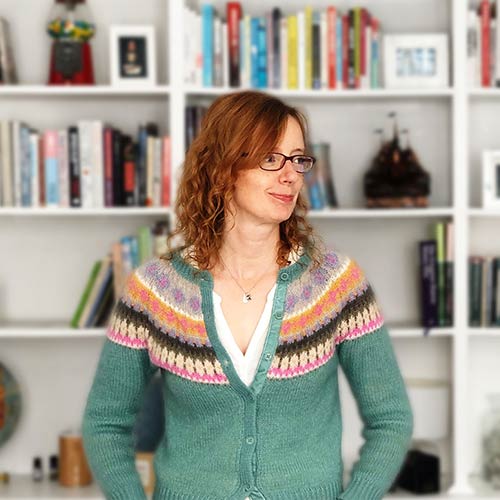
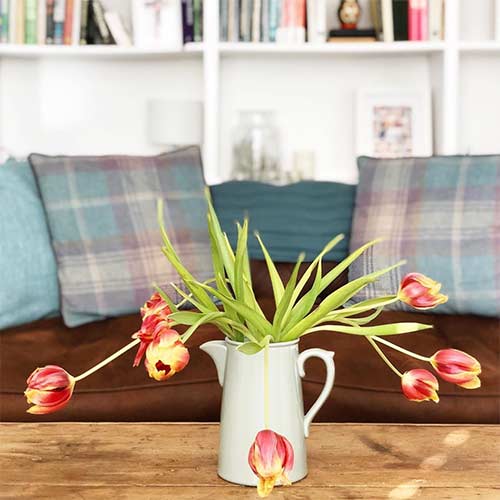
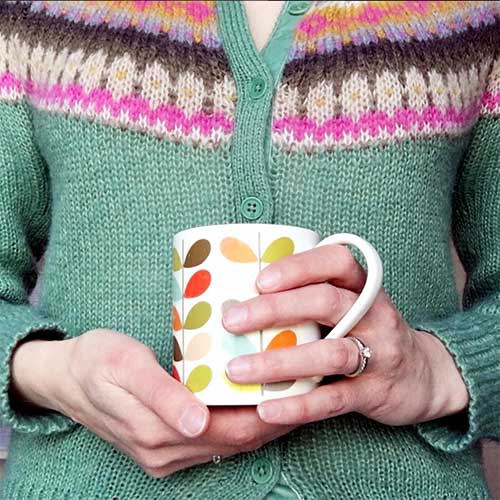
Has slowing down your mind led you to slow down your life, or was it the other way around?
Hmm, that’s like the chicken and egg question! I think they’ve informed each other. Learning more about myself, how my brain works and what gives me energy as well as drains it has led me to adjust my life accordingly. I’m quite far down the introvert end of the scale so I enjoy time on my own and I need space to recharge after being in the company of others. And by living in a beautiful, rural patch of Wales (we moved here nearly five years ago) it gives me physical and mental peace, quiet and space.
Why do you think so many of us struggle with overwhelm and overthinking? Is it a symptom of our modern world?
I doubt it’s a modern phenomena but I don’t think that the challenges of our current, increasingly digital, world help. Our society teaches us that to be ‘good girls’ we need to put others first, be nice and helpful and amenable. So we learn that to meet our own needs is selfish and we should take care of everyone else first.
With mini computers in our pockets we’re not only contactable at any time, so work is no longer kept at work, we can also see what everyone else is doing all the time too. What fun, exciting, popular, idyllic lives they’re having. Or at least that’s the story we tell ourselves from the edited snapshots we see in social media posts.
This all creates pressure, expectation and comparison, a feeling that we’re not doing enough, that WE aren’t enough. I’m not saying that it’s all the fault of the internet and digital devices – they’ve allowed me to create my online business and as an introvert being able to connect with people across the globe from the comfort of my couch is amazing! But it takes conscious, intentional effort to choose how we use and relate to the technology at our fingertips.
What are the benefits to reducing overthinking? What impact does it have on your life?
Huge! The number one being it simply helps you to feel happier. Which might sound too simple or glib, and notice I don’t say happy because it’s not a destination, but ultimately we all want to feel a little bit happier. When we’re in our heads going round in circles overthinking, replaying the past or worrying about what could happen in the future, when we’re running around doing all the things feeling like we’re on a hamster wheel, we’re not being the best version of ourselves.
When you bring down the overthinking and overdoing you bring down the overwhelm. And that frees you to feel happier so you can live more fully in your life. To appreciate who and what is good in your life. To do your best work, to laugh more, to try new things. It allows you to be the creative, patient, funny, generous, loving person that you really are deep down.
And when you feel happier it’s not just you who benefits, everyone else around you does too. Instead of getting a stressed version of you, and we all know what we’re like with our loved ones and at work when we feel overwhelmed, they get the real, beautiful person you really are.
Plus research has found the ‘Three Degrees of Influence’ which shows that your actions and behaviour have a ripple effect to others, and that you can influence someone three people removed from you. Which means that your happiness, your calm and confidence, can rub off on your friend and in turn their friend AND in turn their friend!
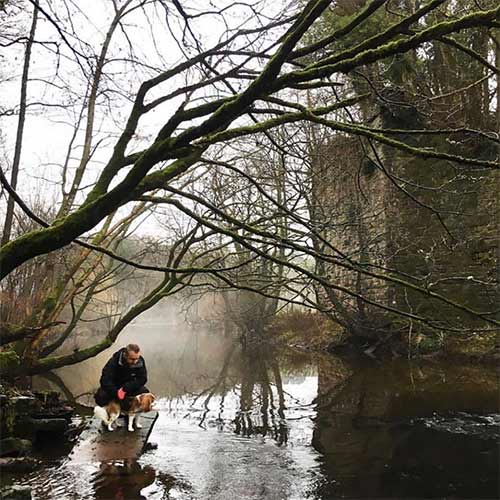
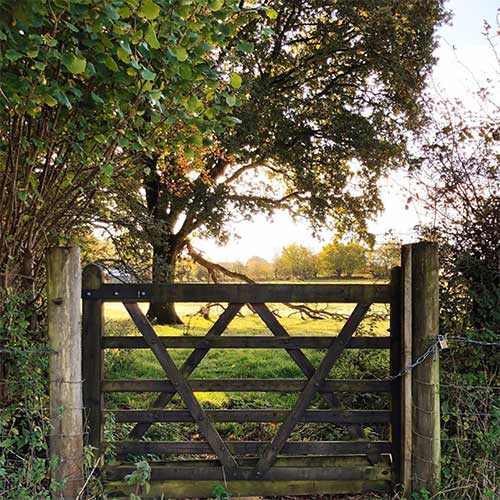
How do you reduce overwhelm and overthinking in your day-to-day life? Do you have any habits or rituals which support you to do this?
There’s so much I can say about this! It’s not about making massive life changes or having loads of time. You don’t need to quit your job, get married/divorced, move country and you don’t need to meditate for hours or become a yogi. Unless you want to.
There are habits you can start to incorporate into your daily life that might seem too simple or small to make a difference but they really do and there’s research to prove it.
Writing three things you’re thankful for each day has been shown to not only help you feel happier and more optimistic but it also builds resilience and lowers blood pressure. The key is to be detailed eg. ‘I’m thankful for the cup of tea my workmate brought me unexpectedly’ rather than ‘I’m thankful I have a job’. And consistent – the benefits are found in doing this daily rather than once in a while. Knowing that you’re going to be writing down your three things means that you’re more present and aware of what’s good in your day.
Meditating for even just five minutes a day will make a difference to you over time. Again, a few minutes a day rather than half an hour once a week is shown to be much more impactful. When you realise your mind has wandered off during meditation you bring it back to whatever your focus was, like your breath. Often thought of as failing at meditation this is actually the valuable part because you’re learning to notice your thoughts rather than be in them. So as you’re going about your life you become better able to recognise when you’re getting lost in unhelpful thinking and take action to help yourself.
Research shows that meditation activates the parasympathetic nervous system that takes you out of fight or flight mode and calms and soothes you. (I have a self-paced meditation for beginners online course called Exhale).
My two tips for setting up and sticking to a new habit are:
1. Understand how you respond to inner expectations. If, like me, you’re great at doing what others need you to do but pretty rubbish at doing what you need (even when you want to or know it’s good for you), then accountability will help you to establish a new habit. It’s not that you have no willpower, it’s simply that your brain needs help by being held accountable in some way or by someone.
2. Anchor your new habit to a current one, also known as habit stacking. By carrying out a new habit, like writing in your gratitude journal, straight before or after an ingrained one, like brushing your teeth, it’s easier to remember to do it.
What would you say to someone currently struggling with overwhelm?
You’re not alone. We can feel like we’re the only one dealing with pressure and stress and feeling overwhelmed but we never are. Life can be a lot to deal with and it’s okay if you’re finding things difficult, it doesn’t mean you’re failing or not good enough and it’s not a way of life that you have to be resigned to. Don’t beat yourself up about it, give yourself a break. Imagine it’s a good friend of yours feeling the way you do, what would you say to them? What would you suggest might help them? Then do that for yourself. Rather than trying to tackle everything that’s overwhelming you identify one step you could take to help yourself. That might be talking to someone, cancelling something in your diary or dropping one thing from your to do list.
I have a free guide on my website – 7 Steps to Overcome Introvert Overwhelm.
And finally what does slow living mean to you?
It means living mindfully. It might not look that slow but it’s being intentional in your actions, being or doing in a way that you’ve chosen consciously rather than on auto-pilot. It means being more aware of how I’m feeling, what I’m saying to myself and others as well as what I’m doing. It’s checking in with myself, even if it only takes a few seconds, to see how I’m feeling, what I might need, if I’m telling myself a story (I’ve too much to do, there’s not enough time, I’m failing, this is too hard…) and taking action if necessary to help myself.
SLOW FIRE QUESTIONS
Favourite place to read a book: Curled up in the corner of a couch, snuggled with my dog, in front of a roaring fire with a mug of tea nearby. But once I get engrossed in a book I could be anywhere with anything going on around me and I’m oblivious to it!
Favourite coffee or tea shop: The Hours Bookshop and Café in Brecon. It’s in an old building, affectionately known as the wonky green shop, and it has a wonderfully warm, cosy, inviting feel to it the moment you step through the door. Its range of local books is great, it hosts some fabulous events, the food is delicious and the owners and staff are so welcoming.
Favourite place in nature: Essentially it’s where I live! I just love walking around the local fields and woods, and along the river, with my dog and husband. On a warm, sunny day if possible. Listening to the sounds – the flowing water, birds tweeting, sheep baa-ing, leaves rustling – feeling the sun or breeze (often rain) on my face, watching as the surroundings come to life in Spring and Summer, changing and dying back in Autumn and Winter, is very grounding. It helps me keep my life in perspective.
Favourite independent shop or maker: Picking just one is hard! I have huge admiration for my friend Charlotte Berridge who draws and creates illustrations and prints inspired by West London. She illustrates the most gorgeous pubs and maps of the local area and as I lived in Chiswick, west London for nearly a decade having her framed prints and tea towels in my home in south Wales reminds me of very happy memories.
Favourite slow living ritual: Hmm, my daily meditation is the first thing that springs to mind as it’s not something you can rush! But also baking. I don’t do it very often and I’m not particularly skilled at it so it’s something I need to give all my attention to. I take my time following the recipe carefully and then spend quite a lot of time peering through the oven door watching the mixture firm up, rise and colour. It’s like magic! I find baking a great mindful activity.
GABRIELLE’S SLOW LIVING TIP
Breathing exercise
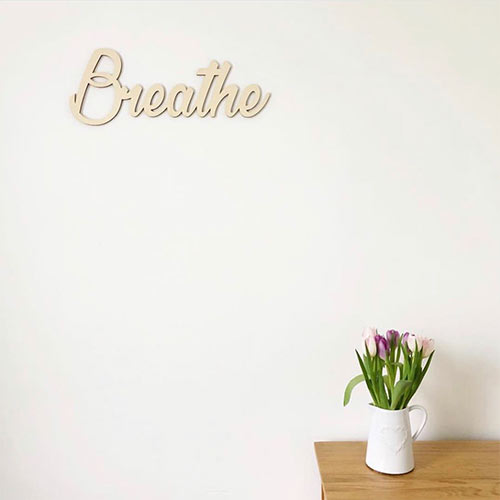
‘It might sound too simple but pausing to take a few slow, deep breaths in and out is remarkably restorative. When we consciously slow our breathing and really inhale air all the way down to the bottom of our lungs (you can push your tummy out as you breathe in to help you) and fully empty our lungs all the way out with a long exhalation (pulling in your stomach) we activate our parasympathetic nervous system. This tells our brain and body that we’re okay, there’s no emergency, we don’t need to fight or flee, and so it calms everything down.
Pausing to take even just five slow, deep breaths in and all the way out only takes about one minute and it really makes a difference. If you’ve been rushing around, you have a lot going on in your head or you’re just feeling stressy, give yourself one minute to be still, take five slow breaths (the long exhale is almost more important than the inhale) and you really will feel that little bit more calm and in control afterwards.’
